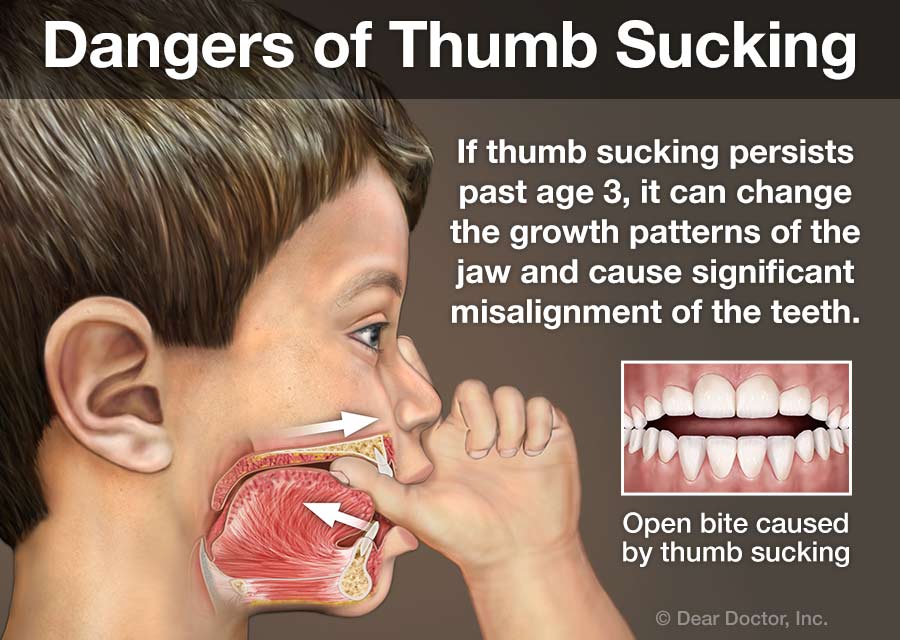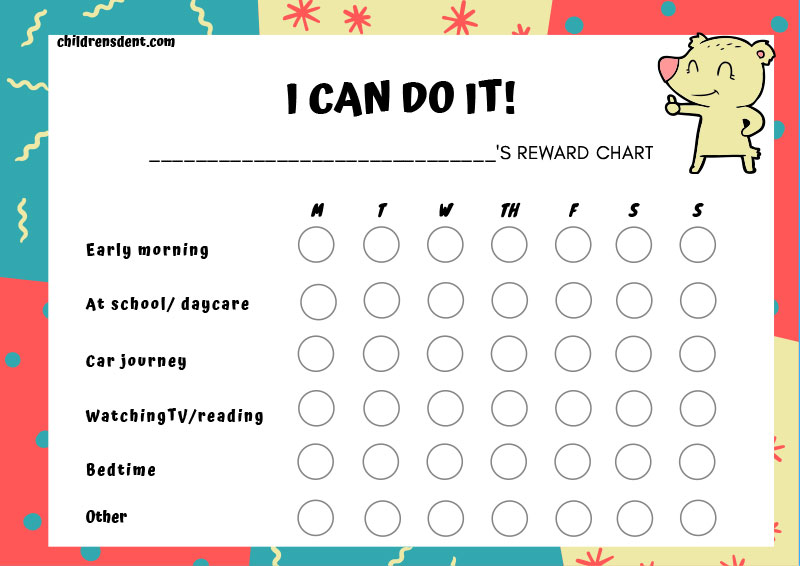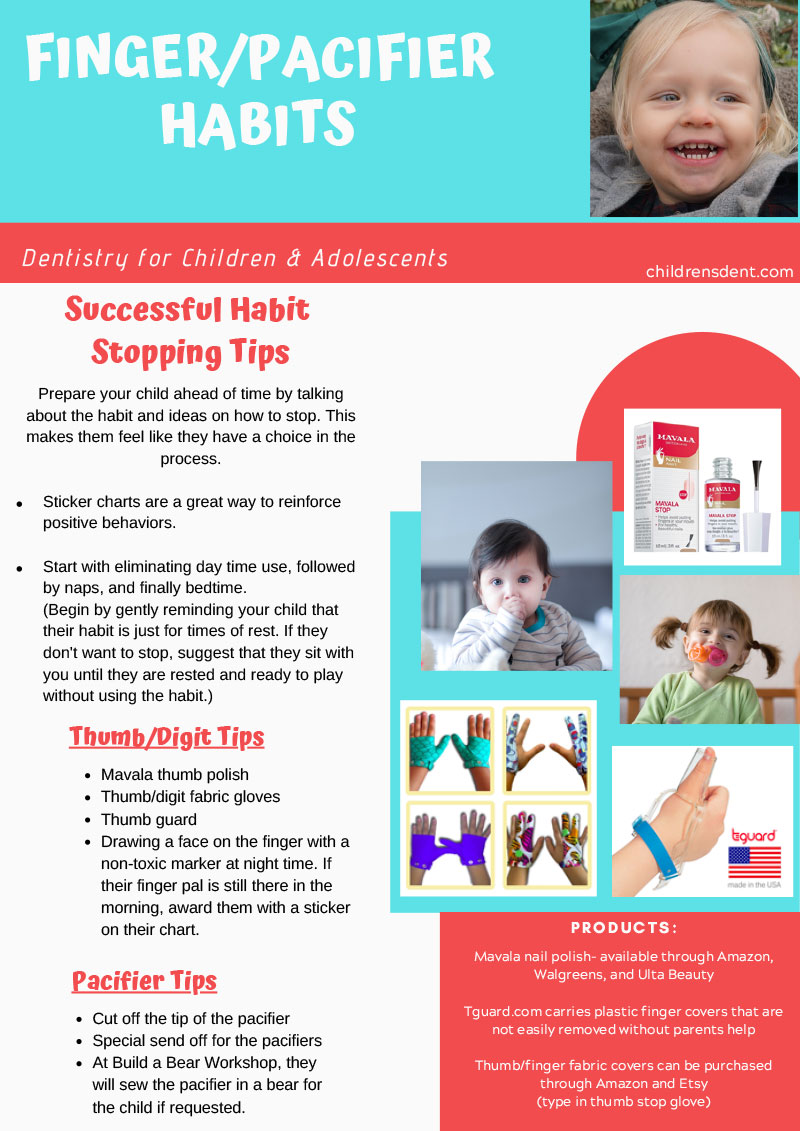Thumb Sucking & Your Child’s Teeth
Tools
Sucking on a thumb or finger is a completely regular habit that some babies develop even before they're born. It's soothing and helps babies make contact with and explore their environment. If sucking habits go on much past the age of 3, however, bite problems may arise.

In a normal bite, the upper teeth grow to overlap the lower teeth. But it's possible for the pressure of a thumb, finger, or pacifier resting on the gums to interfere with normal tooth eruption and jaw growth. Some thumb-suckers develop an "open bite," meaning the teeth don't overlap when a child bites together (View Example); instead, there is an open space between the upper and lower teeth. That's why we should keep an eye on thumb-sucking, though we don't want to intervene too soon.
Breaking the Habit
It's important to remember that most children break thumb-sucking habits independently between the ages of 2 and 4. So, if you're trying to get your child to stop, the first thing to do is ignore it. Pacifiers will usually be given up more quickly than thumbs or fingers. If your child seems unable to stop when it's time, positive reinforcements tend to work better than negative (e.g., putting a bitter substance on the thumb). Here are some things you can try:
- Praise & Reward. Explain to your child why it's so important not to suck thumbs and think of a way to reward them for not doing it — as long as it's not with tooth-harming sweets! Stickers or an activity they enjoy might serve well. Always offer gentle reminders rather than scold when you notice a thumb in your child's mouth, and praise them when they stop.
Click on the image to print a larger version.

- Comfort & Distract. Children have different triggers for thumb-sucking. Does your child tend to do it when stressed or bored? If so, extra hugs or an activity to keep those little hands busy might help.
- Get Creative. You know your child best. Maybe there's a method that would be particularly motivating to him. For example, you could tie his pacifier to a helium balloon and send it to the Tooth Fairy. She can leave a special present under his pillow when she receives it!
- Let Us Help. If your child sucks her thumb, fingers, or a pacifier, be sure to let us know. We can talk to her and help her understand how it will help her teeth to kick the habit.
Click on the image for a larger version.

Thumb sucking is just one reason why it's essential to maintain your child's regular schedule of dental exams, starting from the age of 1 year. We can also teach you and your child effective oral hygiene techniques, help prevent tooth decay, and monitor dental growth and development. Though orthodontics can usually fix bite problems that result from sucking habits, we'd just as soon help you avoid this expense if possible!
